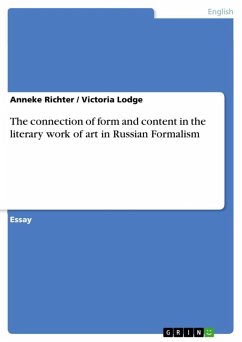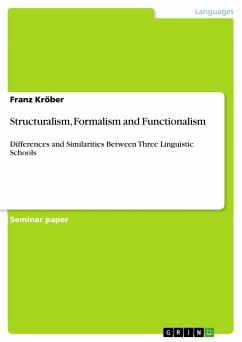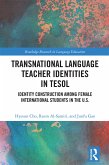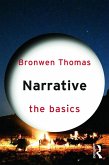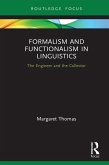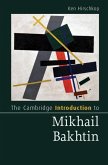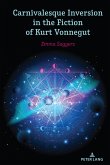Seminar paper from the year 2009 in the subject English Language and Literature Studies - Other, grade: 1,2, University of St Andrews, language: English, abstract: In the course of this essay the terminology that was applied by the Russian Formalist theoreticians shall be investigated (many terms were even invented and introduced by the Formalists themselves). More precisely, a careful look will be taken at how the literary critics, Medvedev and Bakhtin in The Formal Method in Literary Scholarship and Hansen-Löve in Der Russische Formalismus examine the Formalist terms. In order to evaluate Formalist terminology accurately and objectively, the mentioned critics' theories shall be underpinned by and contrasted with the opinion of other critics in this field. Two of Shklovsky's articles, The Resurrection of the Word and Art as Device are taken as a starting point for paving the way for a detailed analysis of the formal terminology. The major focus lies on the term 'ostranenie' that was firstly introduced by Shklovsky (1991) and is most commonly translated as 'estrangement', 'defamiliarisation' or 'making it strange'. The essay shall not only analyse the origins of this concept, but furthermore, compare the different interpretations the term entails. Hansen-Löve's evaluation of the concept of ostranenie as well as Medvedev and Bakhtin's assessment of Shklovsky' analysis of Tolstoy's Kholstomer in the view of estrangement reveals the critical approach on which this essay is based on. Moreover, the Russian term of 'obnazenie', the 'laying-bare' of the work (Hansen-Löve, 1978) and 'oveshchestvlenie', the process of materialisation (Medvedev & Bakhtin, 1978), shall be regarded throughout this essay, since both concepts go hand in hand with the idea of ostranenie. In the last part of the essay, the formal theory of shutting out subjective consciousness from the work (Medvedev & Bakhtin, 1978) and the effects of this concept are in the centre of the attention. This shall lead to the final evaluation of the quality in the formalist concept of perception.
Dieser Download kann aus rechtlichen Gründen nur mit Rechnungsadresse in A, B, BG, CY, CZ, D, DK, EW, E, FIN, F, GR, HR, H, IRL, I, LT, L, LR, M, NL, PL, P, R, S, SLO, SK ausgeliefert werden.



